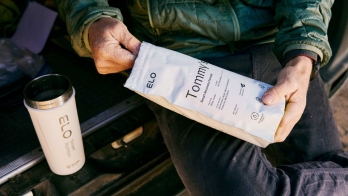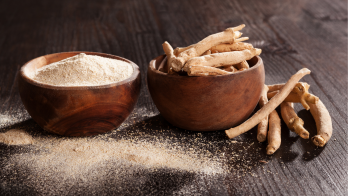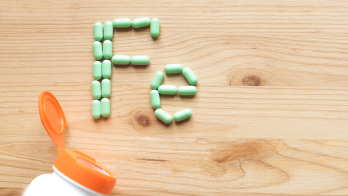Are you getting enough post-workout protein?
Wondering how much protein you need after a workout and whether you might need more? Here’s everything you need to know about post-workout protein, its potential benefits and how Elo Smart Protein can help you recover faster.
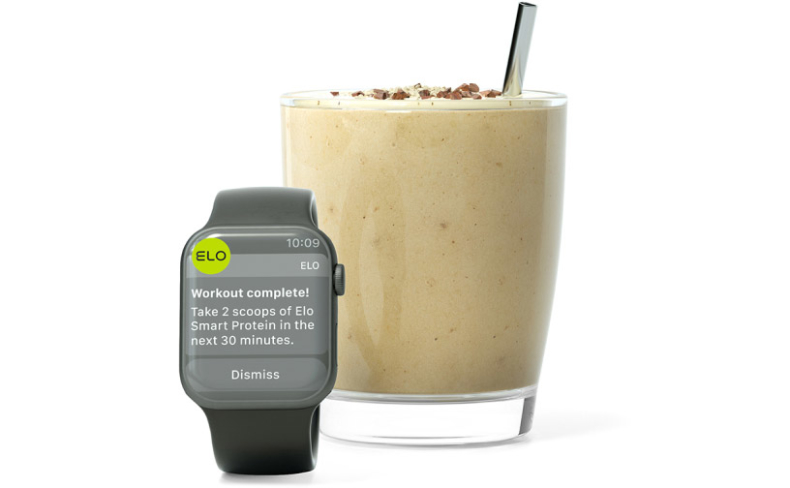
Everyone from professional athletes to occasional exercisers have long sung the praises of protein for performance. Studies continue to show that getting the right amount of quality protein at the right time can boost performance and muscle growth and aid athletic recovery.
But how much protein do you need, and when should you consume it to get the most benefit? Here’s everything you need to know about pre- and post-workout protein to help you level up your performance and achieve your loftiest fitness goals.
What is protein?
Protein is an essential macronutrient composed of 20 different amino acids, nine of which are considered “essential” because your body cannot produce them, and they must come from your diet. These 20 amino acids are considered the primary building blocks of your body since they are found in tissues (including organs, bones, muscles, tendons, cartilage, ligaments, and skin), hormones, enzymes, red blood cells, and more.
The benefits of protein for workouts
Studies show consuming additional protein after strength training can increase muscle size and strength [ 1 2
Getting adequate protein can also boost exercise recovery. Research shows protein supplementation can reduce exercise-induced muscle damage, ease soreness, and speed the recovery of muscle function after exercise [ 1 3
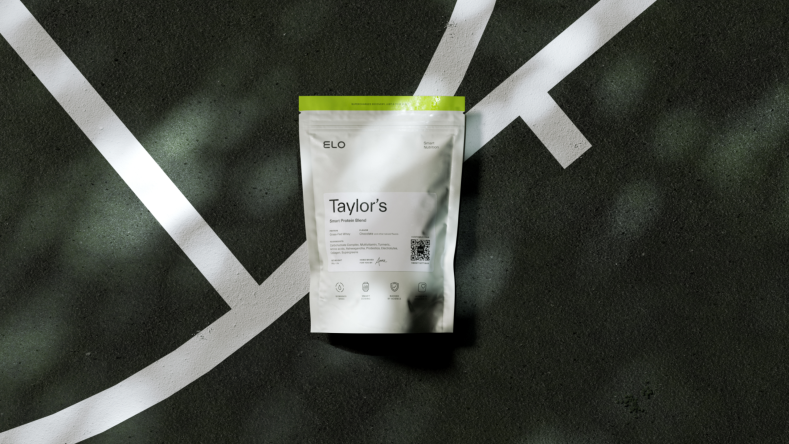
Elo Smart Protein was designed with recovery in mind. Each blend is hand-mixed just for you and is optimized to deliver the right amount of protein and key amino acids after each workout to help you recover faster. Learn more about Smart Protein, including how we build your blend and why it can help accelerate post-workout recovery,
here
.
How much protein after workout?
Research shows both pre- and post-workout protein supplementation can be beneficial for boosting physical performance and recovery, as well as increasing lean body mass, muscle hypertrophy, and strength [ 4
If you’re looking to maximize muscle building and repair, studies show consuming 20-40 g of high-quality protein within two hours of exercise stimulates robust increases in muscle protein synthesis that can benefit both recovery and future performance [ 2
Experts agree though —total protein intake matters more than whether or not you have protein after a workout [ 2
Protein recommendations
The Dietary Reference Intake (DRI) for protein is as follows:
Sedentary adults: 0.8 g protein/kg of body weight/day
Adults over 65 years old: 1 to 1.2 g/kg/day [
5
]Physically active adults: 1.2-2.0 g/kg/day, depending on one’s training regimen and performance goals [
2
,6
,7
,8
]
If you’re not sure how much protein you should be consuming each day or whether or not you might benefit from a personalized protein supplement, there’s no need to worry. At Elo Health, we take the guesswork out of the equation by using science to recommend the right nutrition and supplements for you with our personalized protein smart supplements
Best sources of protein after a workout
Dietary protein provides the amino acids your body needs to maintain healthy tissues, make red blood cells, synthesize hormones and enzymes, and build and repair muscles after exercise.
The best sources of protein you can have after a workout are complete proteins, meaning they provide all nine essential amino acids the body can’t produce on its own. Some examples include fish, eggs, meat, poultry, dairy, quinoa, tofu, and edamame.
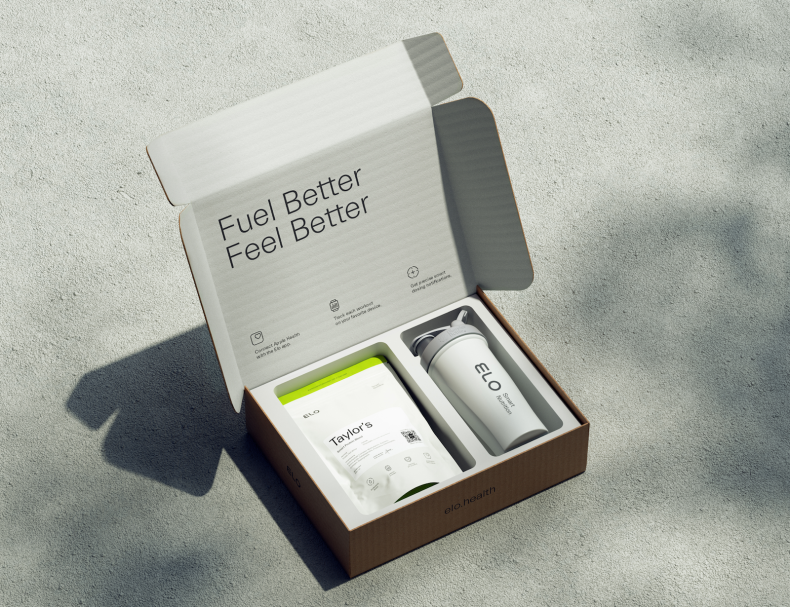
Leucine and post-workout recovery
Leucine is an essential amino acid that plays a key role in muscle protein synthesis. Research shows consuming 2-3 g of leucine shortly after a workout can stimulate muscle growth and repair while reducing the rate of muscle protein breakdown and enhancing overall recovery [ 2 9
Good sources of leucine include salmon, milk, yogurt, cottage cheese, eggs, chicken, beef, and tofu, as well as high-quality protein powder like Elo’s Smart Protein
Elo Smart Protein
Elo Smart Protein is also backed by the latest science to help you recover faster and get the most out of every scoop of protein powder. Try it out for yourself today
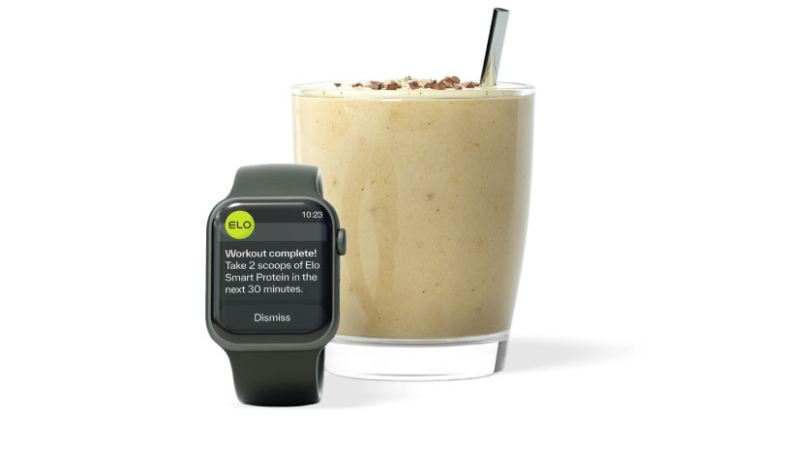
Other FAQs about protein & recovery shakes
To learn more about protein supplements, here’s everything you need to know about protein powder protein shakes how to make a protein shake vegan protein shake
How many protein shakes a day
should you have?
Summary
Protein is an essential macronutrient that has been shown to have key performance and recovery benefits for athletes. Consuming 20-40 g of high-quality protein shortly after exercise stimulates robust increases in muscle protein synthesis that can benefit both performance and recovery, however, experts agree total protein intake matters more than whether or not you supplement with protein before or after exercise.
The best sources of protein for athletes include salmon, milk, yogurt, cottage cheese, eggs, chicken, beef, and tofu. When combined with a healthy diet, protein supplements like Elo Smart Protein
Disclaimer: The text, images, videos, and other media on this page are provided for informational purposes only and are not intended to treat, diagnose or replace personalized medical care.
Key takeaways
Adequate protein intake is essential for the body to function and perform optimally.
Protein goals for active adults may range from 1.2-2.0g/kg/day depending on one’s exercise regimen and training goals.
You can meet your protein goals by consuming smaller amounts of high-quality protein (20-40 g) every 3-4 hours throughout the day.
To stimulate increased muscle protein synthesis that can boost performance and recovery, aim to get 20-40 g of high-quality protein (providing 3-5 g of leucine) within 2 hours of a workout.
Elo Smart Protein is optimized to deliver the right amount of nutrients, including leucine and other amino acids, to boost post-workout recovery.
References
Morton, R. W., Murphy, K. T., McKellar, S. R., Schoenfeld, B. J., Henselmans, M., Helms, E., Aragon, A. A., Devries, M. C., Banfield, L., Krieger, J. W., & Phillips, S. M. (2017). A systematic review, meta-analysis and meta-regression of the effect of protein supplementation on resistance training-induced gains in muscle mass and strength in healthy adults. British Journal of Sports Medicine, 52(6), 376–384.
https://doi.org/10.1136/bjsports-2017-097608
Kerksick, C., Harvey, T., Stout, J., Campbell, B., Wilborn, C., Kreider, R., Kalman, D., Ziegenfuss, T., Lopez, H., Landis, J., Ivy, J. L., & Antonio, J. (2008). International Society of Sports Nutrition position stand: Nutrient timing. Journal of the International Society of Sports Nutrition, 5(1).
https://doi.org/10.1186/1550-2783-5-17
Brown, M. A., Stevenson, E. J., & Howatson, G. (2018). Whey protein hydrolysate supplementation accelerates recovery from exercise-induced muscle damage in females. Applied physiology, nutrition, and metabolism = Physiologie appliquee, nutrition et metabolisme, 43(4), 324–330.
https://doi.org/10.1139/apnm-2017-0412
Stark, M., Lukaszuk, J., Prawitz, A., & Salacinski, A. (2012). Protein timing and its effects on muscular hypertrophy and strength in individuals engaged in weight-training. Journal of the International Society of Sports Nutrition, 9(1), 54.
https://doi.org/10.1186/1550-2783-9-54
Bauer, J., Biolo, G., Cederholm, T., Cesari, M., Cruz-Jentoft, A. J., Morley, J. E., Phillips, S., Sieber, C., Stehle, P., Teta, D., Visvanathan, R., Volpi, E., & Boirie, Y. (2013). Evidence-based recommendations for optimal dietary protein intake in older people: A position paper from the Prot-Age Study Group. Journal of the American Medical Directors Association, 14(8), 542–559.
https://doi.org/10.1016/j.jamda.2013.05.021
Stokes, T., Hector, A. J., Morton, R. W., McGlory, C., & Phillips, S. M. (2018). Recent Perspectives Regarding the Role of Dietary Protein for the Promotion of Muscle Hypertrophy with Resistance Exercise Training. Nutrients, 10(2), 180.
https://doi.org/10.3390/nu10020180
Carbone, J. W., & Pasiakos, S. M. (2019). Dietary Protein and Muscle Mass: Translating Science to Application and Health Benefit. Nutrients, 11(5), 1136.
https://doi.org/10.3390/nu11051136
Deldicque L. (2020). Protein Intake and Exercise-Induced Skeletal Muscle Hypertrophy: An Update. Nutrients, 12(7), 2023.
https://doi.org/10.3390/nu12072023
Thomas, D. T., Erdman, K. A., & Burke, L. M. (2016). Position of the Academy of Nutrition and Dietetics, Dietitians of Canada, and the American College of Sports Medicine: Nutrition and Athletic Performance. Journal of the Academy of Nutrition and Dietetics, 116(3), 501–528.
https://doi.org/10.1016/j.jand.2015.12.006



